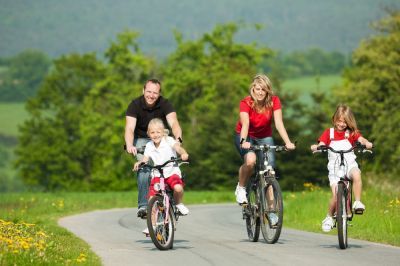New study highlights the importance of free time

Your support helps us to tell the story
From reproductive rights to climate change to Big Tech, The Independent is on the ground when the story is developing. Whether it's investigating the financials of Elon Musk's pro-Trump PAC or producing our latest documentary, 'The A Word', which shines a light on the American women fighting for reproductive rights, we know how important it is to parse out the facts from the messaging.
At such a critical moment in US history, we need reporters on the ground. Your donation allows us to keep sending journalists to speak to both sides of the story.
The Independent is trusted by Americans across the entire political spectrum. And unlike many other quality news outlets, we choose not to lock Americans out of our reporting and analysis with paywalls. We believe quality journalism should be available to everyone, paid for by those who can afford it.
Your support makes all the difference.A new study has confirmed what most of us have often thought -- people really are happier at the weekend.
A new study has confirmed what most of us have often thought - people really are happier at the weekend.
According to a new study published in the January 2010 issue of the Journal of Social and Clinical Psychology, people experience better moods, greater vitality and fewer aches and pains from Friday evening to Sunday afternoon, even if they like their job.
As the first report of its kind into the mood variations of employed adults, it found that regardless of income, working hours, profession or age, men and women alike consistently feel better mentally and physically at the weekend.
"Workers, even those with interesting, high status jobs, really are happier on the weekend," said author Richard Ryan, a professor of psychology at the University of Rochester in New York. "Our findings highlight just how important free time is to an individual's well-being."
The report concluded that weekends are associated with higher levels of freedom and closeness, as individuals are involved in activities of their own choosing or spending time with more intimate family members and friends. By contrast, the authors suggest, the work week is filled "with activities involving external controls, time pressures, and demands on behavior related to work, child care and other constraints."
These findings support the theory that our well-being may be partially dependent on meeting basic psychological needs for autonomy, competence, and relatedness.
"Far from frivolous, the relatively unfettered time on weekends provides critical opportunities for bonding with others, exploring interests and relaxing - basic psychological needs that people should be careful not to crowd out with overwork," Ryan cautioned.
Academics from the University of Rochester, McGill University in Montreal, Canada and Virginia Commonwealth University in Richmond, Virginia randomly questioned 74 American adults, aged 18 to 62 who worked at least 30 hours per week, on their emotional and physical states throughout the weekend.
Join our commenting forum
Join thought-provoking conversations, follow other Independent readers and see their replies
Comments